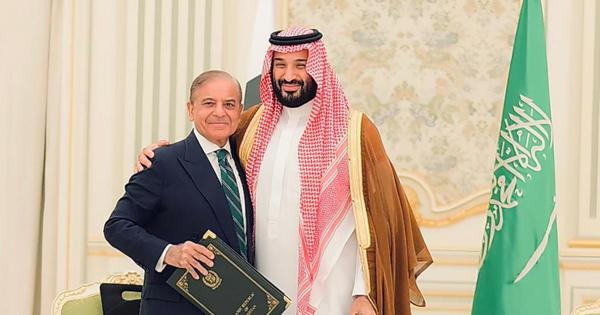India evaluates potential impacts of the new mutual defense agreement on its security landscape.
Saudi Arabia and Pakistan have recently formalized a mutual defense agreement, establishing that any act of aggression against either nation will be treated as an attack on both. This pact was signed by Saudi Crown Prince Mohammed bin Salman and Pakistani Prime Minister Shehbaz Sharif during the latter’s state visit to Saudi Arabia.
An unnamed senior official from Saudi Arabia remarked to Reuters that the agreement was not a reaction to any specific country or event. Instead, it represents an institutionalization of the longstanding and deep cooperation between the two nations. The official also emphasized that the relationship with India remains strong, stating, “Our relationship with India is more robust than it has ever been. We will continue to grow this relationship and seek to contribute to regional peace whichever way we can.” This assertion comes in the context of ongoing geopolitical dynamics in the region.
The signing of the pact follows a recent joint session of the Arab League and the Organisation of Islamic Cooperation, which convened in Qatar after Israel’s military actions against members of the Palestinian militant group Hamas in Doha. The attack, which occurred on September 9, drew condemnation from various Arab and Islamic nations. The Hamas leaders were in Doha to discuss a U.S.-backed ceasefire proposal regarding Gaza, making Qatar a significant mediator in the negotiations. Given Qatar’s close ties with the United States and its hosting of a major American military base, the implications of these developments are far-reaching.
India’s Ministry of External Affairs has responded to the signing of the agreement by announcing that it is assessing the potential implications for national security. The ministry stated, “We will study the implications of this development for our national security as well as for regional and global stability.” Furthermore, it reaffirmed the government’s commitment to safeguarding India’s national interests and ensuring comprehensive national security across all domains.
This new agreement comes on the heels of a brief military conflict between India and Pakistan that occurred just four months earlier. On May 7, tensions escalated when the Indian military conducted Operation Sindoor, targeting what it identified as terrorist camps in Pakistan and Pakistan-occupied Kashmir. This operation followed a terror attack in Jammu and Kashmir’s Pahalgam that resulted in the deaths of 26 individuals on April 22.
In retaliation, the Pakistan Army engaged in shelling Indian villages along the Line of Control, leading to the deaths of at least 22 Indian civilians and eight defense personnel. Although an understanding was reached on May 10 to cease firing after four days of conflict, India has maintained that Operation Sindoor represents its ongoing policy against cross-border terrorism. Prime Minister Narendra Modi had previously indicated that India had merely paused its retaliatory actions against Pakistan’s military and terrorist infrastructures, signaling a vigilant stance towards Islamabad’s future actions.








